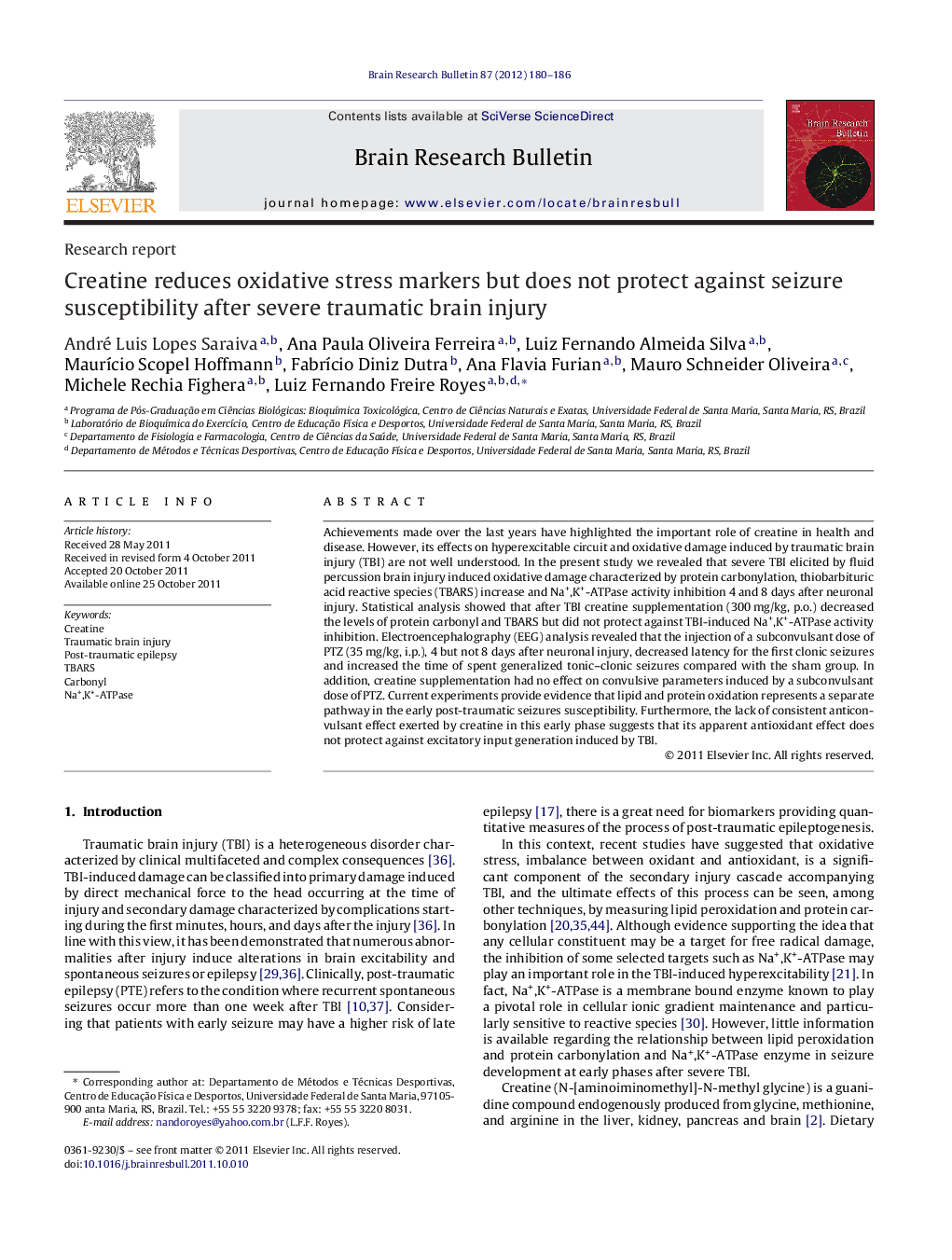| کد مقاله | کد نشریه | سال انتشار | مقاله انگلیسی | نسخه تمام متن |
|---|---|---|---|---|
| 4319006 | 1613271 | 2012 | 7 صفحه PDF | دانلود رایگان |

Achievements made over the last years have highlighted the important role of creatine in health and disease. However, its effects on hyperexcitable circuit and oxidative damage induced by traumatic brain injury (TBI) are not well understood. In the present study we revealed that severe TBI elicited by fluid percussion brain injury induced oxidative damage characterized by protein carbonylation, thiobarbituric acid reactive species (TBARS) increase and Na+,K+-ATPase activity inhibition 4 and 8 days after neuronal injury. Statistical analysis showed that after TBI creatine supplementation (300 mg/kg, p.o.) decreased the levels of protein carbonyl and TBARS but did not protect against TBI-induced Na+,K+-ATPase activity inhibition. Electroencephalography (EEG) analysis revealed that the injection of a subconvulsant dose of PTZ (35 mg/kg, i.p.), 4 but not 8 days after neuronal injury, decreased latency for the first clonic seizures and increased the time of spent generalized tonic–clonic seizures compared with the sham group. In addition, creatine supplementation had no effect on convulsive parameters induced by a subconvulsant dose of PTZ. Current experiments provide evidence that lipid and protein oxidation represents a separate pathway in the early post-traumatic seizures susceptibility. Furthermore, the lack of consistent anticonvulsant effect exerted by creatine in this early phase suggests that its apparent antioxidant effect does not protect against excitatory input generation induced by TBI.
► Traumatic brain injury (TBI) induces oxidative damage 4 and 8 days after injury.
► TBI induces Na+,K+-ATPase inhibition, 4 and 8 days after neuronal injury.
► Creatine attenuated protein carbonylation and TBARS increased after TBI.
► Creatine did not protect against Na+,K+-ATPase activity inhibition after TBI.
► Creatine did not protect against convulsive parameters induced by pentylenetetrazole.
Journal: Brain Research Bulletin - Volume 87, Issues 2–3, 10 February 2012, Pages 180–186